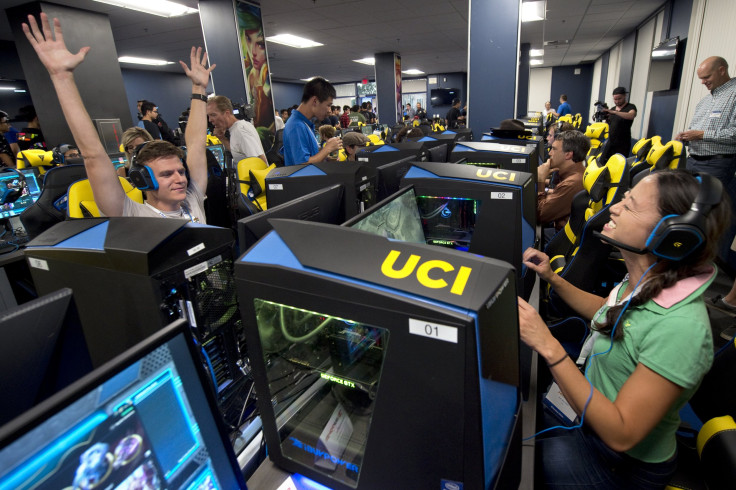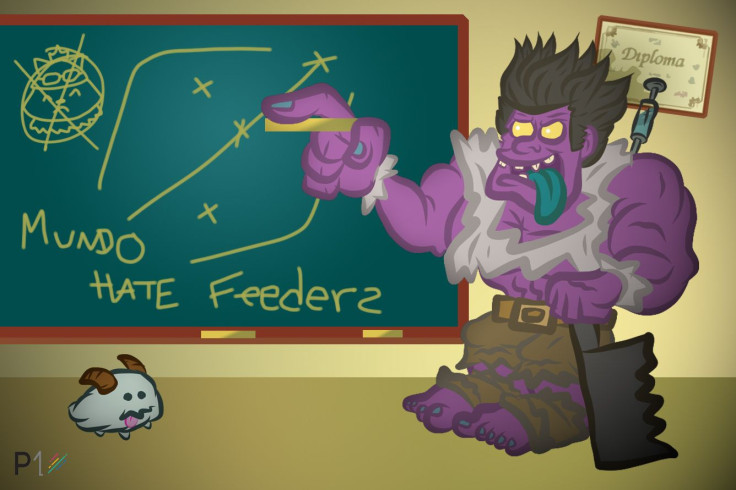Years ago, being good at video games meant little more than your name plastered all over your local arcade leaderboards. But with the explosion of esports and the video game industry, the same skills and reflexes that made countless kids amazing at Street Fighter can now lead to a paying career. You don’t even have to be amazing at a game to join the esports boom—dozens of new job titles are created each year to serve the growing demand for high-action pro-gaming content. Still, it may seem a bit daunting as many are unsure how to break into the competitive gaming scene and become a part of the action.
In the coming academic quarter, UC Irvine will offer an online course with former League Of Legends coach Chad “HistoryTeacher” Smeltz. “Overview Of Esports” shares lessons Smeltz has learned over the course of his career, and will include guest speakers like Echo Fox’s General Manager to share what working in esports is actually like to those thinking of pursuing their passion in this blossoming industry.
“It’s an overview course, so I’m going to try and teach esports from as many different angles as possible,” Smeltz told Player.One. “I’m going to talk about esports through the view of a game developer, an esports organization, professional players, esports media, collegiate, and then I’ll be talking about some hot topics as a whole.”
Some colleges have started to recognize esports as more than just a passing fad. Scholarships at schools like Northwestern and the University of Wisconsin give esports hopefuls a chance to attend college by being good at video games. UC Irvine is the first university to provide a dedicated esports arena for the community on campus, which is a huge financial commitment to competitive gaming. “Education is extremely important for the growth of esports,” said Michael Sherman, the lead on League Of Legends college esports program. “Universities are supporting gaming as a holistic vision for their school.”
Like most who’ve succeeded in esports over the last few years, Smeltz had an interesting start. During college, Smeltz was a high school history teacher by day, and also streamed his League Of Legends ladder climb on Twitch by night. One day, while playing at the highest ranks, Smeltz ended up in a game with two popular pro players, Marcus “Dyrus” Hill and Brandon “SaintVicious” DiMarco.
“They were getting a kick out of me because when I’d be doing well, I’d post history facts in the chat,” Smeltz said. “People would wonder who that is.” Overnight, Smeltz’s stream went from 50 viewers to 10,000 fans who enjoyed his analytical approach to the game. Going from teaching 10th and 12th graders to a streaming star was quite the shock, and completely changed his life.
As Smeltz continued to stream, fans asked if he had any interest in coaching, a relatively new career in the League Of Legends competitive scene. Smeltz responded to his fans in a clip that explained why he would be a good coach and when the video was posted to reddit, he promptly received two offers to move to California and coach a pro team. Smeltz had to decide between a stable career in education or take a risk with esports. His parents were sceptical at first, with his father unsure if this job would be nothing more than a scam. To pursue his dream, Smeltz completely unrooted his life in Pennsylvania for the new opportunity in California.

“Moving across the country was completely foreign to me,” Smeltz said. “I was 23 and had never been on a plane before.”
Coaching Team 8, which eventually became Immortals, gave Smeltz a taste of the esports scene. He learned quickly that one person can’t manage the lives of five pro players on a team. Nearly half the team was older than Smeltz, and they all believed they could do whatever they wanted. There was a pro who barely ate anything at all and had no energy for game scrims, another who only ate Hot Pockets and a few that had to go the gym at 3 a.m. Players would make around $25,000 a year and wanted to have part-time jobs to supplement their income, but that’s impossible to do when they spent 15 to 16 hours a day, six days a week, dedicated to playing League Of Legends .
Early on in League Of Legends esports, the coach was expected to be the den mother of the team, which is quite impossible when coaches also had to spend most of their focus on picks and bans, team synergy and in-game strategies. “(Esports organizations) realized you can’t just have one person doing literally everything,” Smeltz said. “It’s better to have someone that only focuses on in-game stuff, and then there’s the general manager, house manager, fitness trainers and nutritionists.”
Over the next two years, Smeltz worked for esports orgs NRG and Phoenix1 before he finally decided to take a break from the pro scene to teach. “A couple of years ago, esports couldn’t sustain a collegiate program,” Smeltz said. “I think we’re finally at the point where colleges can move forward with esports, but the question is how.”
If you want to get into esports, you don’t need a class. More important than the education is the passion—attending events, messaging people in the scene or just studying games are much more productive steps. Esports is a unique industry in that anyone with a computer and internet can participate, though gaining success is much more difficult. The scene will continue to grow as more colleges learn they can capitalize on the pro dreams of students. Smeltz’s story is unique, like those of most people who manage to achieve success in esports; you don’t just wake up one day and end up at the Cloud9 team house. Like any passion, it takes hard work and a huge amount of luck. Learning about the inner workings of the machine is useful, but don’t assume that’s enough to get your foot in the door.
Turn on that computer, boot up League Of Legends and put your ass to work.



















